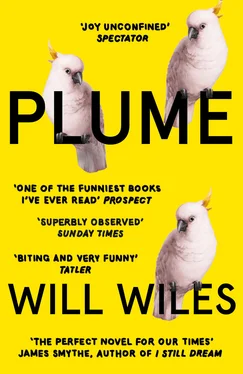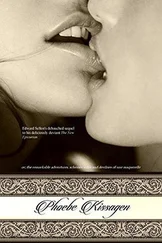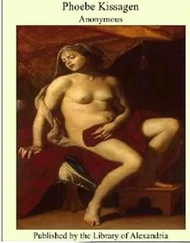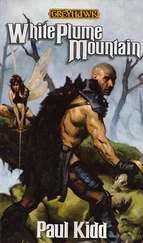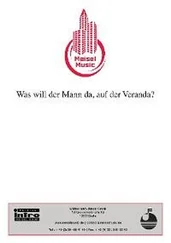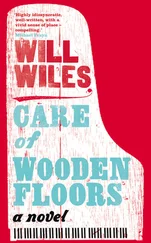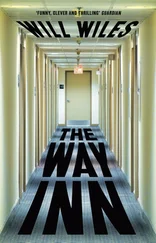1 ...7 8 9 11 12 13 ...19 A mania took hold. An addiction, maybe. No city in Europe was safe. It didn’t really matter where this postcard came from, and I already knew the gist of what was written on the back. It would join a small pile of very similar postcards on the kitchen counter, next to a cork board thoroughly covered with a bright collage of classical columns, Gothic spires, Moorish palaces, Dutch gables and high pitched Nordic roofs.
The era of arguments came to an end. So began the era of city breaks.
Standing in the icy doorway for so long had completely thrown me off my stride. I opened another can of Stella, forgetting that I already had one on the go.
All the cans in the fridge were empty by the time I left the house, and so were the half-empty cans I had found. I would have to pick up more, but then I would have needed to make a run in any case. Three cans or fewer was completely insufficient, dangerous. The horrible thought that there was no alcohol in the flat would be at or near the front of my mind all day.
In other regards the morning was going well. I had showered, put on (mostly) clean clothes, and set out at a reasonable time. My bag was double-checked for all the things I needed: two digital voice recorders, my old one and my new one, and spare batteries for them. After the recent disaster with F.A.Q., I was taking no chances.
Also in the bag were Pierce’s books: two novels, the mugging book, and the cash-in collection of non-fiction that his publisher had put out the Christmas that the mugging book was at the top of every broadsheet ‘books of the year’ list. Actors, MPs, television historians, baking competition hosts, they all exerted themselves to overstate how luminous, powerful, searing, important, draining, life-affirming, etcetera, etcetera they had found Night Traffic . I felt quite resentful about all this, because I had been reading Pierce for years. My copy of Night Traffic was the softback Panhandler Press edition with the cheap cover art, not the classy Faber edition that appeared when the award shortlists and reviews started to pile up, and which is still inescapable on the Tube.
I had been reading Pierce since his first novel, Mile End Road , came out in 2009. This was a fairly conventional story of twenty-somethings finding love, losing it, finding it again and then losing it for a second and final time. But the few reviews it received praised its rendering of twenty-first-century London life and its (at the time) unusually realistic depiction of the mobile phone and social media habits of young Londoners. It was longlisted for a couple of prizes and did not trouble any bestseller charts.
Pierce’s second novel, Murder Boards , had the good fortune to appear just before the 2011 riots. To capitalise, the post-riot paperback was given a sensational cover, with a movie-like strapline: THE CITY IS ABOUT TO EXPLODE. This bore little relation to its contents, 500 pages of non-linear narrative and cut-up technique told from the multiple viewpoints of its spectral cast of characters. It was concerned – obsessed, really – with missing persons and unresolved crimes, and steeped in police jargon and the imagery and phrasing of TV news. At times, it appeared to be deliberately opaque and confusing, as if the reader were an investigator confronted with contradictory accounts of events and inscrutable enmity between characters, between reader and author, between author and reality, with the objective truth of the past unknowable. To give up on Murder Boards was to play Pierce’s game, to take on the role of the indifferent bystander, the grazing TV viewer, the desensitised inquisitor, the impatient and unsympathetic bureaucracy. The reader’s natural frustration with a long and frankly exhausting experimental novel was thus subverted. Read to the end or put the book down unfinished – either way, Pierce won. Reviewers were divided. One-third of them hailed Pierce as a genius, another third called him a charlatan. The remainder made it obvious they did not understand the book, and maybe had not even finished it, by playing it safe with cautious praise.
After the modest success of Mile End Road , Faber had poached Pierce from Panhandler and put out Murder Boards with much ballyhoo, but despite a brief life as an edgy fashion accessory and social media prop, it was a resounding commercial failure. Whatever happened, Pierce was back at Panhandler for his third book, Night Traffic . Maybe the big house took fright at the thought of releasing a long essay covering many of the same themes as the chunky, expensive literary novel that was stinking up its balance sheets.
But since the appearance of Murder Boards , Pierce had acquired a small and eager following, myself included. His post-riots essay for 3AM Magazine , ‘Beneath the Paving Stones, the Fire’, had circulated on Twitter and Tumblr for more than a month, and was republished by the New York Times . Pierce had been writing essays about London for years, but now his writing became more adventurous, more scandalous, and funnier. He was able to arrange gonzo escapades that other journalists – again, myself included – could only dream about. A night spent with criminal fly-tippers, dumping trash on street corners and narrowly evading the police. Searching for forgotten IRA arms caches in north London back gardens. A memorably hilarious excursion with three Russian heiresses, the daughters of Knightsbridge-resident oligarchs, to find and consume authentic East End jellied eels.
In the summer of 2012 – the ‘Olympic summer’, we journalists are now apparently bound by law to call it, although for me personally it has darker connotations – Night Traffic appeared. Short, extraordinary, explosive. Night Traffic was an account of an incident the previous year in which Pierce had been mugged by a group of youths, no more than teenagers, in a quiet part of his native east London. Finding Pierce’s mobile phone and about £20 in cash to be insufficient reward for their effort, the youths had shown the author a blade, marched him to a cashpoint and forced him to withdraw £300. He spent more than half an hour in their company, crashing through an immense range of emotions from outright terror to perverse bonhomie and back to terror. Afterwards he had been too traumatised to appreciate that he should report what had happened to the police. A dark week was spent shut up in his flat, turning the events of that night over and over in his head, before he realised that he did not want to report it after all. Instead he would compose his own report, tackle the matter as a writer, as a journalist. He returned to the scene during the day and at night, and retraced his steps. He tried to find witnesses. He searched for the youths, sitting out through the small hours. He tried to get CCTV footage of the incident, without success. And he found himself coming to a transgressive acceptance of what had happened: that his ordeal had been a natural part of the ecology of the city and the economy of the night, that it was all preordained and the product of order, not disorder – and, most controversially, that violence might be a salutary urban force, ‘the street seeking balance’.
Night Traffic was not quite an ‘Overnight Success’, as the headline of Pierce’s Guardian interview put it. Panhandler was a small operation, based in Ipswich, and only managed to get it into a few larger bookshops. But Pierce’s cult reputation got it under all the right noses, and even before its official publication there were rumours and previews promising that it was special. Then came a month-long bombardment of long, shining pieces by heavy-hitters: Will Self in the Guardian , Geoff Dyer in the Telegraph , Michael Moorcock in the Independent , Rebecca Solnit in the TLS , Iain Sinclair in the LRB . Panhandler’s first printing sold out immediately and it rushed a deal with Faber for a mass-market paperback, which hit every bookshop in the UK and Ireland just as the award shortlists started to roll in. Knopf bought US rights for six figures. By early 2013, Pierce was a rare creature: a literary celebrity. He even made a brief, ill-at-ease appearance on The One Show , during which, in a first for that programme, he used the word ‘epiphenomenal’.
Читать дальше
